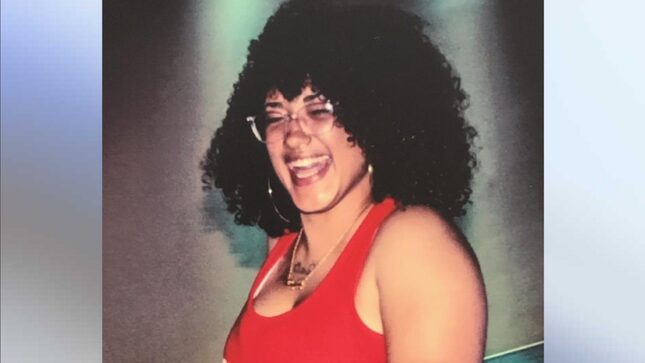‘Am I Ever Going to Go Home?’: A Sex-Trafficking Survivor Calls for Support After Second Arrest
In 2020, Kim Kardashian played a role in granting Alexis Martin clemency, but a recent parole violation landed her back in jail, possibly for life.
In Depth

In April 2020, Alexis Martin, a sex-trafficking survivor who, at 17 years old, was tried as an adult and charged for the murder of a man she claimed was her pimp, was granted partial clemency and released from prison. Two years later, the Akron, Ohio, native was reincarcerated after a random parole visit. Martin had served seven years of her original 21-years-to-life sentence. Now, because the state’s parole board reinstated her original sentence, Martin won’t have the opportunity to return to the parole board until November 2034, when her minimum of 21 years are served. She could remain in prison for the rest of her life.
During a phone call with Martin, who is currently detained at the Ohio Reformatory for Women, and her attorney, Jennifer Kinsley, the two women told Jezebel that they believe Martin is, once again, being unjustly held accountable for a man’s mistakes. “The evidence really did not point to her in any way,” Kinsley said.
Hours before her December 2021 arrest, a man Martin had been dating moved into her apartment. He had yet to unpack his boxes, and Martin maintains she didn’t know exactly what they contained: in part, 26 grams of cocaine, 45 grams of marijuana, and two firearms, per police records. Another firearm, licensed to Martin’s roommate, was found locked in a safe in the roommate’s room, Kinsley said. During the random parole check, officers found the drugs and firearms, and took Martin and the two men who were present into custody. She told Jezebel she never intended to violate her parole. There was too much at stake.
“For the first time in almost two years, I experienced life, laughter…it was the closest to freedom I’ve ever had, because yes, there was still a lot of things that made me feel like I wasn’t free,” Martin said about the time between her release from prison and subsequent arrest. “But it was the closest to freedom that I’ve had in the whole 23 years of my life.”
After she was released in April 2020—due in part to the public advocacy of Kim Kardashian—Martin became an activist, often meeting with politicians and advocating on behalf of Safe Harbor legislation, which are laws that prohibit the arrest and prosecution of young victims of commercial sexual exploitation and sex trafficking. Martin said she was also gainfully employed, attending therapy, and consulting doctors as to whether or not she could ever become pregnant. Because of the trauma—bodily and otherwise—incurred from years of repeated sexual assaults, she was unsure if she would ever be able to have children. Ultimately, she was diagnosed with polycystic ovary syndrome, a condition that causes enlarged ovaries and small cysts to develop.
When she was a teenager, Martin—who’d already suffered parental abuse, depression, and a miscarriage after she was raped at 12 years old—was repeatedly raped and sex trafficked by Angelo Kerney, a 36-year-old man who was fatally shot in a robbery in 2013. Prosecutors argued that the 15-year-old Martin had a role in the shooting (though she didn’t pull the trigger), resulting in her conviction and first incarceration. A 2021 Washington Post investigation revealed the countless systemic failures that led to this outcome. Even still, numerous appeals and a little attention from the world’s most famous woman were required for Governor Mike DeWine to grant Martin partial clemency. Strict restrictions, which included wearing an ankle monitor and random parole inspections, were mandated as part of her 14-year parole.
“The facts of her case are particularly unique,” DeWine said at the time. “The ultimate decision under the Ohio constitution is mine. The buck stops with me. I take responsibility for any decision.”
-

-

-

-

-

-

-

-

-

-

-

-

-

-

-

-

-

-

-

-

-

-

-

-

-

-

-

-

-

-

-

-

-

-

-

-

-

-

-

-








































